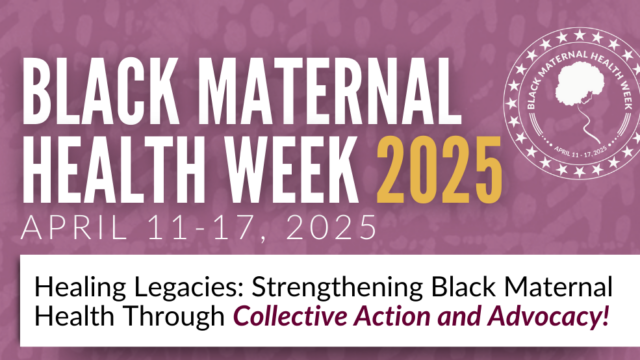And in NYC the number increases to nine times more likely. According to the CDC, more than 80% of pregnancy related deaths are preventable. April 11th-17th marks National Black Maternal Health Week, led annually by the Black Mamas Matter Alliance, to highlight persistent legacies of systemic oppression(s), reproductive injustices, and health inequities that have disproportionately affected Black mothers and people.
[ See Black Mamas Matter Alliance’s BMHW25 Toolkit ]
Yet, in the current political moment, maternal health and reproductive justice for Black women face a crisis that is only escalating. Cuts to Medicaid, which provides essential coverage for 41% of U.S. births and 64% of births among Black women, will make lifesaving care even harder to access.
New York’s new plan to provide Medicaid reimbursement for doula services, implemented statewide in 2024, is now vulnerable to Medicaid cuts. In a healthcare system where women of color are more likely to have negative experiences and mistreatment with maternity care practitioners, having access to affordable, community-based doulas through Medicaid reimbursement is key for improving Black maternal health – but funding for this innovative solution is on the chopping block.
Threats to abortion access and diversity, equity, and inclusion (DEI) practices will also hurt Black maternal health. Abortion bans and restrictions often increase inaccessibility of maternal health care as providers are forced to leave states or close maternity wings, and compromise on care for significant pregnancy complications. Challenges to DEI practices also erode the federal government’s ability to hold hospitals accountable for their treatment of Black birthing people and role in improving Black maternal health.
Reproductive justice and health for Black women is on the line in our country – states like New York must take on the responsibility to fight back with legislation that expands access to quality care. Taking action to protect our rights and health care on the federal level, while advocating for alternative funding on the state level for our most essential programs, will be key to improving Black maternal health in our state.


